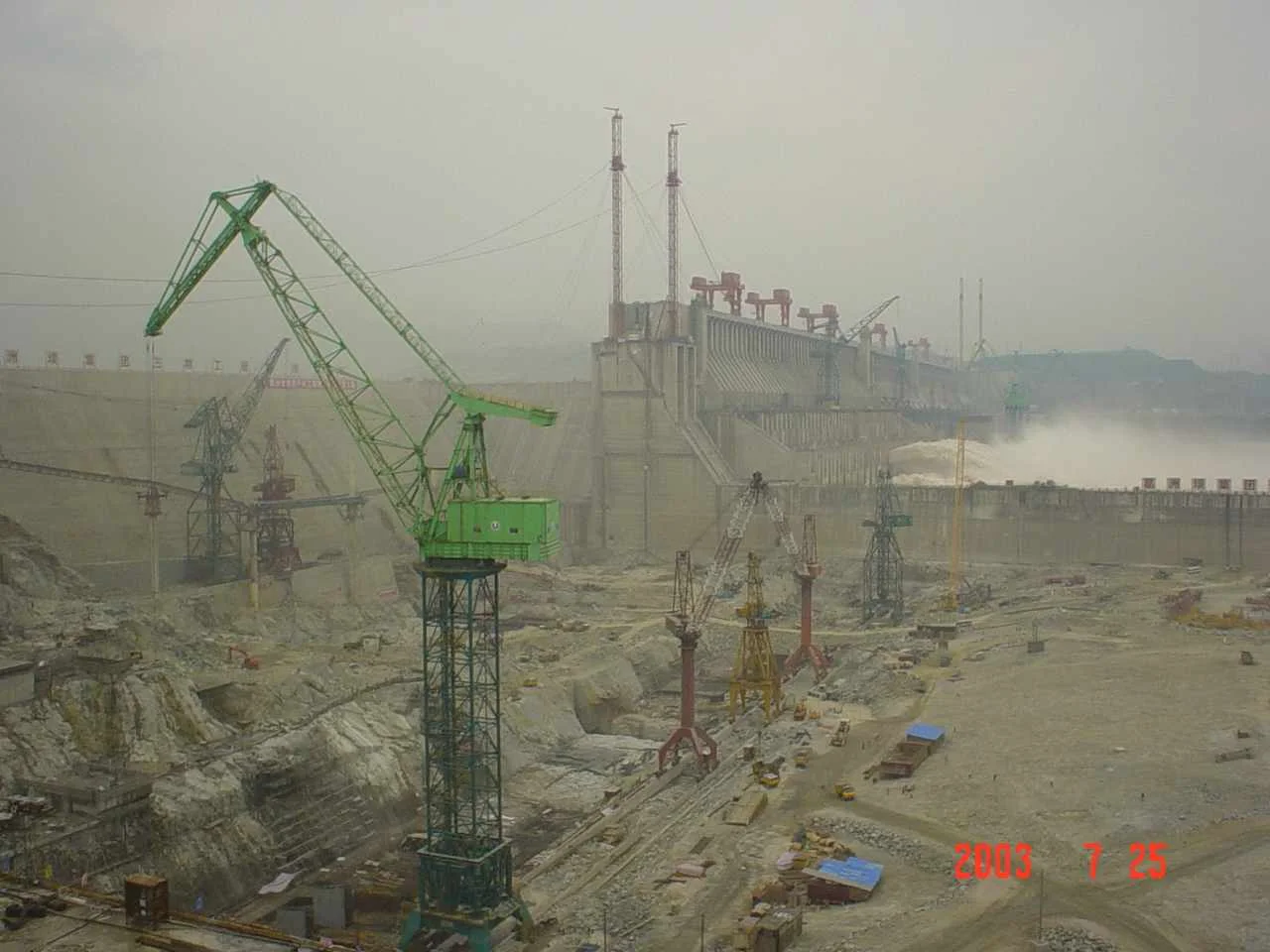Three Gorges Damned
November 27, 2007
BELEAGUERED OLD Wang Xiaofeng, the head of the State Council office in charge of the China's Three Gorges Project, has obviously had a very hard time of it of late. The Xinhua news agency cited Wang in a now-famous article about the impending disaster at the world's biggest dam, reservoir and hydropower plant, and since then, we have heard nothing but the furious whirr of bicycle spokes. (They're backpedalling, dude.)
The Xinhua article unleashed a torrent of bad press. Foreign papers and news agencies were as close to unanimous as they can possibly be, claiming that, "at last", the Chinese government had finally acknowledged the colossal folly of building the World's Biggest Dam near the World's Most Fragile Ecosystem, as well as the monumental stupidity of impounding the World's Biggest Reservoir in one of the World's Most Densely Populated Farming Areas.
The flow of sedimentation from the Yangtze's upper reaches, as well as the prospect of "reservoir-induced seismicity" and the greater risk of landslides on the river's inundated banks, had put the region's already fragile ecosystem under considerable threat, and there was no shortage of local people willing to risk the wrath of the government by telling foreign journalists how aggrieved they felt.
Since then, the Chinese government has been circling the wagons, and Wang himself has given an interview with Xinhua news agency to reiterate that, well, in fact, the Three Gorges Project is doing very well, thank you very much.
All that was not quite enough to head off the foreign media, who sniffed blood once again last week after a landslide on the banks of the Yangtze killed 30-odd people. And so, the Three Gorges Project Commission decided to have another go at putting the record straight.
Wang, at a specially-convened press conference this morning, said that he had actually done no backpedalling at all. They have, in fact, known about the problems all along, and came to the conclusion - since the feasibility studies were approved 15 or so years ago - that the considerable risks of the project were outweighed by the even more considerable benefits. The fault, of course, lies with the foreign media, and the way foreign journalists have grabbed the project by the teeth and refused to let go.
Wang wasn't churlish enough to criticize foreign hacks directly. That was left to crusty old hydropower veteran Pan Jiazheng, who received a rapturous round of applause from the Chinese journalists in attendance after daring to suggest that foreign hacks had - it pains us to say it - exaggerated and misinterpreted the whole sorry affair. "You never write about the good things," he said, "and always about the dark side."
Pan, now in his 80s, accused the "prejudiced" foreign press of "demonizing" the Three Gorges Project, and was particularly incensed - he said - by a report that likened the state of the water in the Yangtze River to "soy sauce".
He also said - with some astonishment - that he had even seen foreign reports "satirizing" the Three Gorges Project. We felt a swell of pride until we figured that it was highly unlikely that a busy electric engineer who doesn't speak English would ever chance upon our futile offerings.
In any case, in spite of ourselves, we did feel somewhat chastened, because Pan actually had a point about the negative journalism, and Wang was actually right to suggest that the risks associated with the project had all been acknowledged and accounted for (even if the domestic media were not allowed to report on them).
Every single foreign news agency has rushed forth in the last few months with the latest tales of woe from the middle reaches of the Yangtze River, citing politically-prejudiced environmentalists who have had the audacity to claim that everything that could possibly go wrong will go wrong, and that tampering with nature is doomed from the very beginning.
At the same time, the journalists in question (including us, as it happens) have wasted no opportunity at all to point out that China's environment stinks, that its economy still relies on coal, that the population is dying as a result of industrial poisons contaminating its water supply, that the political system is utterly incapable of reform and that the whole place is utterly doomed. Reporters write hysterical pieces about China's power supply problems, and equally hysterical pieces about China's attempts to redress its power supply problems.
This, of course, is the role of reporters - something that the Chinese government, used to a compliant media environment, finds difficult to understand - but at the same time it does feel as if China is sometimes held to rather higher standards, standards that it is routinely expected to fail.





